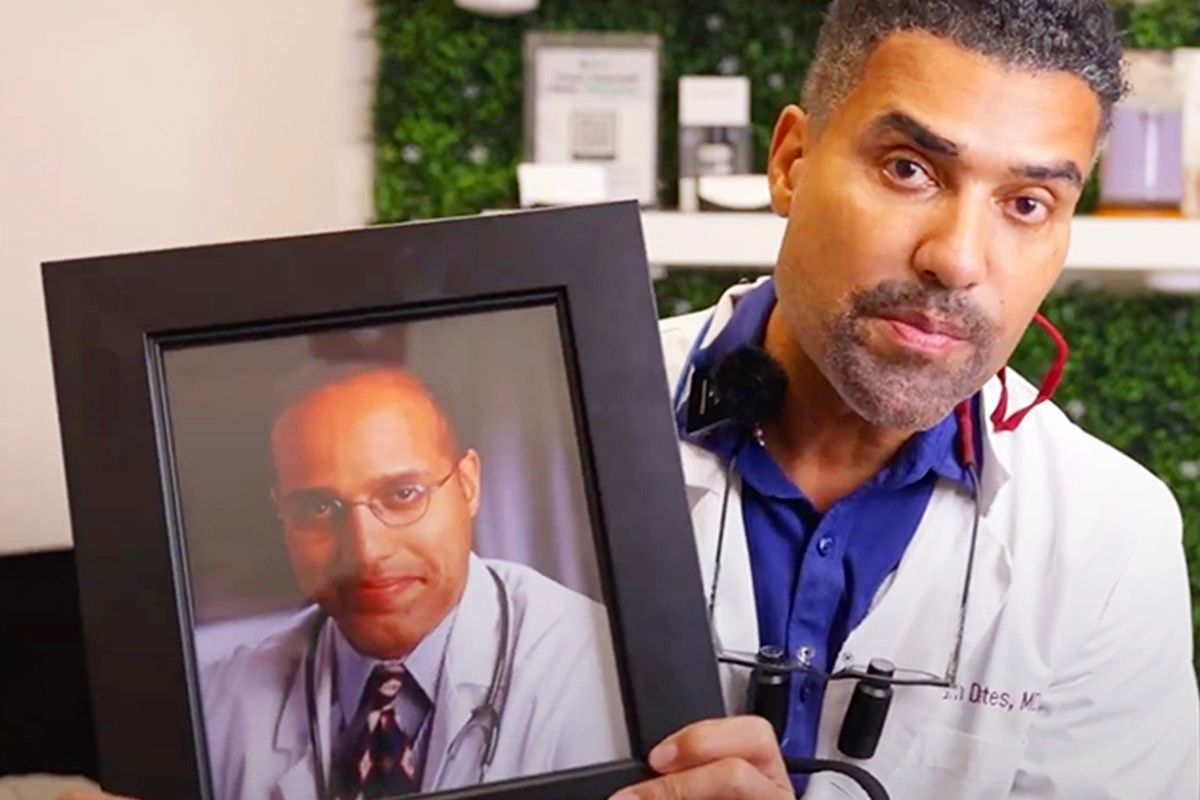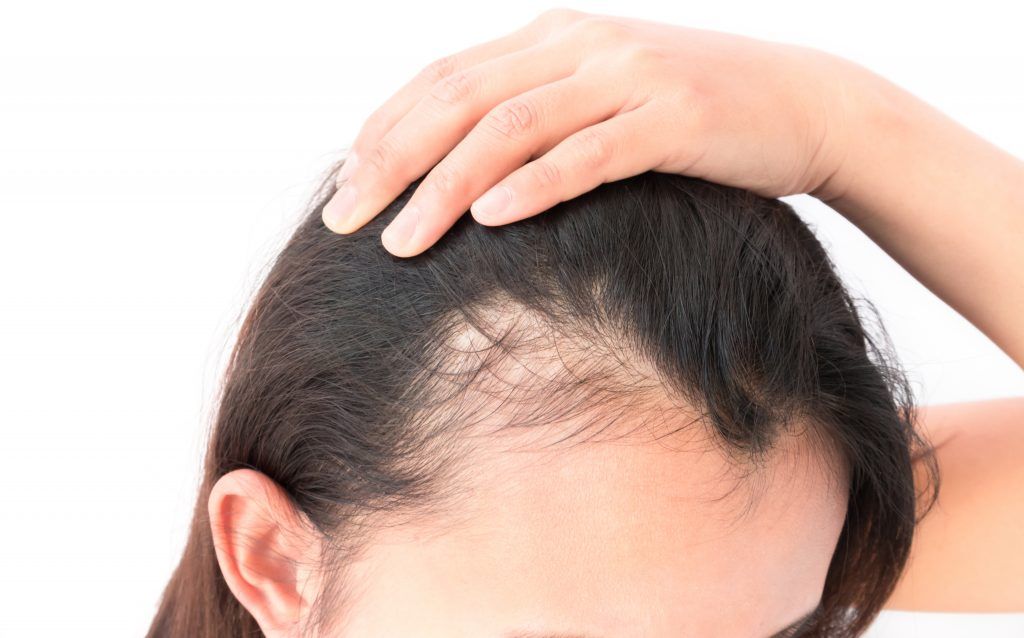



There is an old saying that 'hair is a woman's glory.' In today's society, this adage remains true. Not only does hair increase a woman's self-confidence, but a healthy, beautiful mane can also improve a woman's appearance.
Also, hair can be a sign of how healthy a woman is. For example, the vitality of a woman's hair could be one of the first signs that there is an internal or hormonal imbalance within the body.
When the body is dealing with stress or a crisis, the growth of hair strands can experience stunted growth. This allows the body to redirect energy and nutrients to the area(s) of the body that is under stress. With that said, hair loss is an issue that should never be ignored or taken lightly. It is also important to not turn to the use of topical products before finding out the true cause for the hair loss.
Even though age is generally one of the leading causes of hair loss, other factors can cause hair loss such as hormones. A hormonal imbalance can cause thinning of the hair and generate male pattern baldness and alopecia in women. This is one of the main reasons why it is so important to understand the true causes of your hair loss.
One positive note is that hair loss is generally not a sign that you are infertile. The loss of hair can be devastating for women of all ages, but especially for women who are still in their childbearing years. However, as previously stated, hair loss can be caused by an imbalance in your hormones, and this can cause issues with fertility.
It is a fact that most women generally feel more attractive and confident when they have a healthy head of hair. Women feel more feminine when they have a gorgeous mane, and they typically place more emphasis, energy and time into their appearance. In other words, they exhibit a greater display of self-love.
Identity, Society And Social Media
Hair is the one part of our bodies that is considered an accessory. It is permanent, and it can be styled, colored or cut any way one chooses. Unfortunately, a woman's confidence and self-worth can quickly be deflated once her hair begins to fall out and thin.
It is also true that women are regularly exposed to commercials, advertisements and other media that tells them what the standard of beauty is and how well they measure up to it. When these messages show confident and accomplished women who are able to achieve their goals because they have healthy hair, how is a woman supposed to feel when they notice clumps of hair going down the shower drain?
One of the best and most powerful tools that a woman has at her disposal is education. Once a woman understands the exact cause of her hair loss, she can begin the process of healing her body naturally. Hair regrowth is possible if the body is able to achieve balance and can recover.
The Causes Of Hair Loss
The AAD (American Academy of Dermatology) states that everyone loses hair at an average rate of 100 hair strands every day. However, women who believe they are losing more strands than the average daily rate could be experiencing hair loss.
Women should also understand that any external or internal stress or crisis that causes hair loss in women can have an impact on their hormonal balance. The follicles are considered androgen sensitive. Androgen-sensitive means that the hair follicles are very sensitive to the male hormones and the fluctuation of these types of hormones. There are some causes of hair loss in women that have been previously mentioned, but there are other reasons why a woman may experience hair loss.
PCOS is a woman's reproductive issue that is caused by hormonal imbalances between progesterone and estrogen in the body. PCOS can be caused by several factors including:
● Elevated testosterone levels in women
● High insulin levels
The use of birth control can also cause hormonal balances and hair loss in women. Most birth control pills on the market are made with imitation progestins. These chemicals act similar to male hormones, and it is these hormones that can lead to the damage of the hair follicles.
Impaired thyroid function can also lead to hair loss in women. This can be the cause of hair loss in many women, especially if the hair loss is evident along with other symptoms such as:
● Fatigue
Chronic inflammation and nutrient deficiencies can also be a factor in women's hair loss. Inflammatory medical conditions like Celiac Disease can cause sensitivities in the hair follicles. The hair follicles become sensitive to any amount of androgen. Fortunately, if this is the cause of hair loss, it may be reversed by adopting a diet that is free of dairy and wheat.
A diet that is deficient in iron, Vitamin A, and Vitamin E can result in hair loss. Increasing foods and supplements that contain these nutrients can help reduce the shedding and falling of hair.
During pregnancy and childbirth, a woman's body undergoes major changes. Estrogen levels can rise and fall sharply during the gestation period. The dips in the estrogen levels can cause hair loss after a woman has given birth.
Although it can be scary to see handfuls of hair coming out at one time, hair loss is normal after childbirth. Fortunately, hormone levels generally balance out shortly after birth and excessive hair loss stops.
Women who are worried about excessive hair loss should get tested by their healthcare provider to determine the actual cause of their hair loss. Thyroid, nutrient, hormone and insulin levels should all be checked for any abnormal results. Your healthcare provider will devise a treatment plan to encourage hair growth. Lifestyle and dietary changes can make a positive impact and can help stop and even reverse hair loss. Be patient and know there is hope to end your hair loss!



Ready to love your hair? Call 312.883.9617 for a consultation or fill out the form below
OUR LOCATION
213 N. Stetson Ave
Chicago, IL 60601
HOURS
Copyright ©2025 Dr. Yates Hair Science | All Rights Reserved
Powered by HEAVY LEVITY